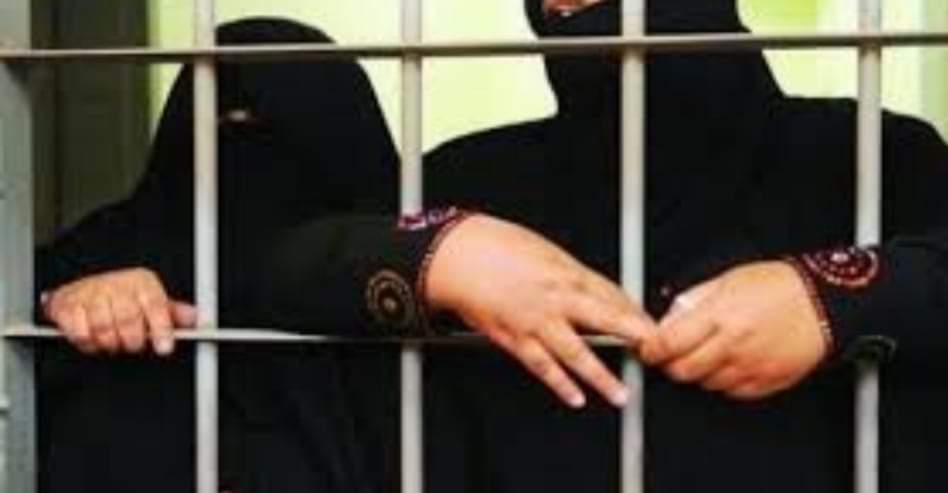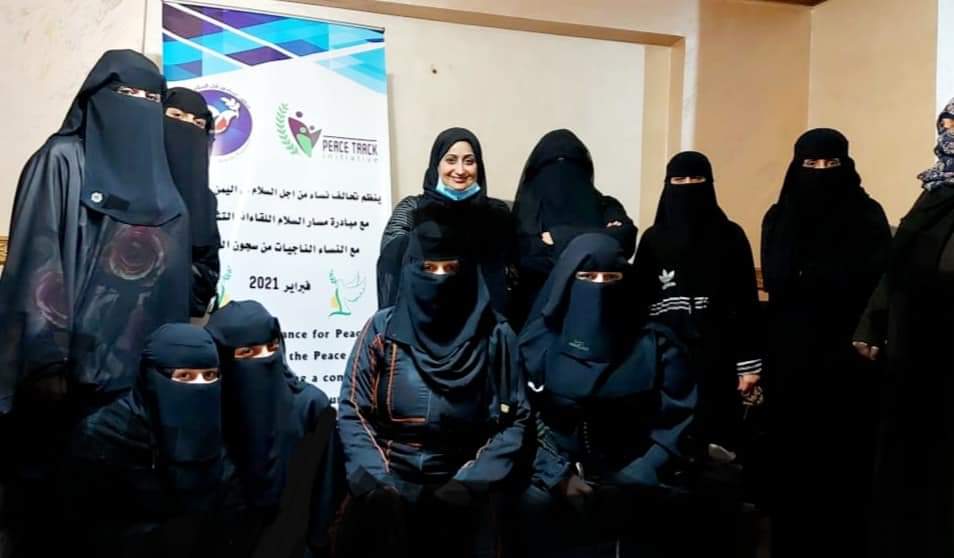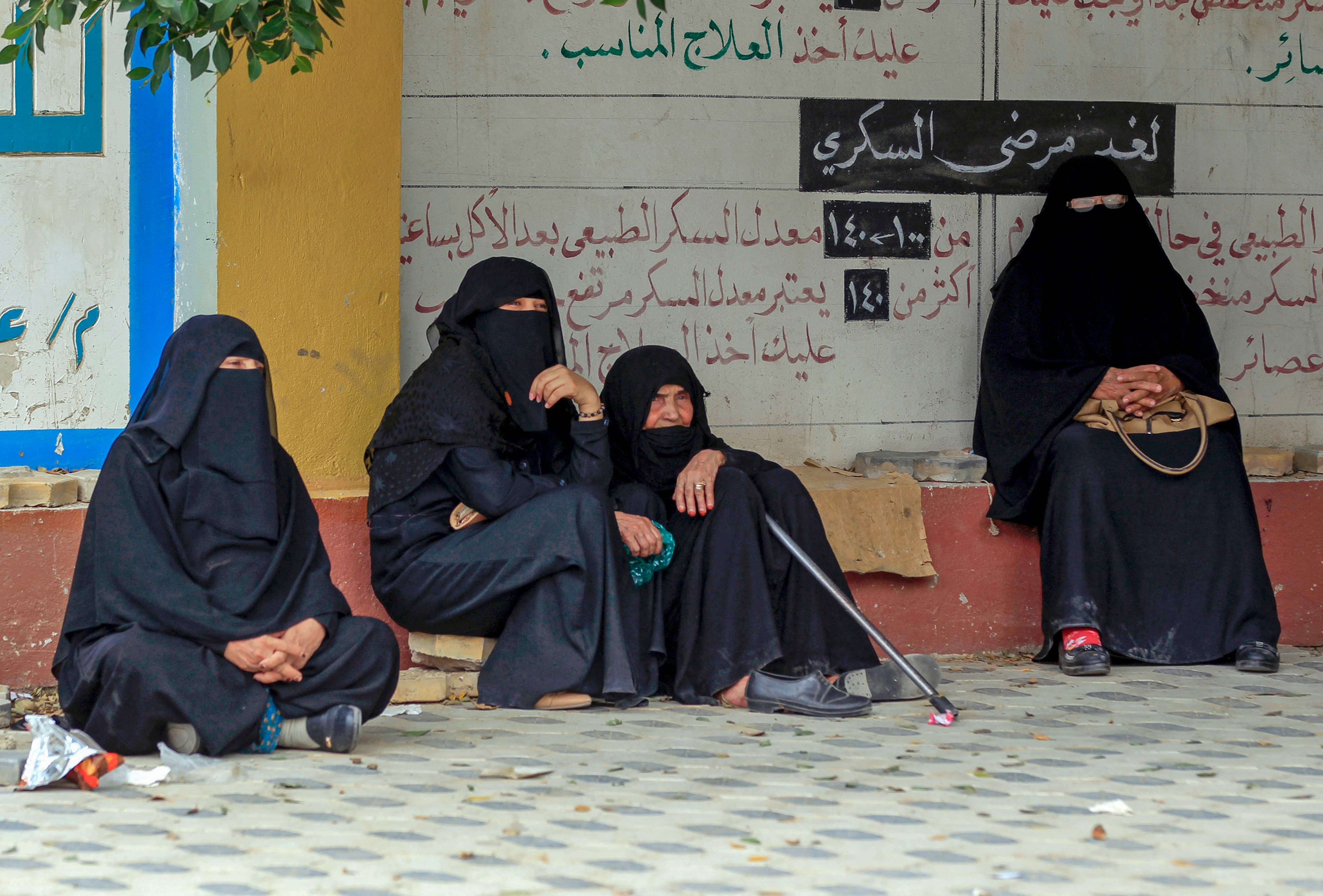‘It’s for the service of the homeland’: The Houthis’ sexual violence and prostitution rings in Yemen
Houthis are mutilating sex organs of female detainees to deter opposition, claims Noura Al Jerwi, a rights activist working with the survivors

On a balmy Saturday afternoon in February, the car in which Yemeni model Entesar al-Hammadi, was travelling to do a photo-shoot was detained at a checkpoint on Shamlan street, northwest of Yemen’s capital Sanaa.
The exact reason for her detention is unknown, but Khaled al-Kamal, her lawyer, alleges it’s because she was riding in a car with a man accused of drug dealing, and she works as “a model and actress”. The lawyer took up Al-Hammadi’s case ten days after she was imprisoned. Last week, he confirmed that al-Hammadi attempted suicide.
When a delegation of journalists, lawyers, and judiciary members visited Sanaa’s Central Prison last month, al-Hammadi told them she was accused of drug trafficking and prostitution without any evidence. Weeks later, she was threatened with a virginity test, which the authorities later withdrew.
According to the Geneva-based SAM organisation for rights and liberties, al-Hammadi told the visiting delegation that the Houthi security officials passed her and other girls between several homes, “forced them to drink alcohol and sleep with the people”. When she confronted the Houthis with these accusations of prostitution, they responded, “it’s ok as long as it’s for the service of the homeland.”
Al-Hammadi, 20, is the daughter of an Ethiopian mother and a Yemeni father. With piercing light green eyes, a penchant for traditional Yemeni clothes, as well as Western-styled denim and leather jackets, and cowboy hats, her style is bohemian yet conventional. Her profiles have attracted thousands of followers, including designers and filmmakers.
Al-Kamal, who has been practising law for 21 years in Yemen, said the procedures for her arrest were flawed and against Yemen’s constitution and the law.
Sadly, al-Hammadi’s case is not unique. Between December 2017 and 2020, nearly 1181 women have been arrested, said Noura al-Jerwi, chairwoman of the Women for Peace Alliance. The actual number of women languishing in prisons run by the Iran-backed Shia group is understood to be much higher as the sites are clandestine and illegal, underground, and often in areas hard to access. Al-Kamal said details on how these places are run is deliberately scant.
Forced abductions, torture and sexual violence against women have risen since 2015, said al-Kamal, handling ten other cases similar to al-Hammadi’s.
By speaking to five survivors, lawyers, and human rights activists, The Independent learned that prostitution rings and sexual violence against women are rife in Houthi-run detention sites in Yemen.
Women aged between 13 and 55 - regardless of whether they are homemakers, teachers, humanitarian workers and medical staff - have not been spared by the Houthis in their efforts to silence dissent. The Houthis broke the pelvis of al-Hammadi’s friend, tortured another woman until she was paralysed and unconscious, and even married some young women to the group’s members. Al-Jerwi said women and their children were raped in Houthi custody.
Coercion, blackmail and intimidation
Ms Jerwi, who travels between Cairo and Aden to support the survivors, said the militia use coercion, blackmail and intimidation to entrap women.

The Houthis also use a trained female military group, Al Zainabiyat, to trap and snitch on other women and Yemen’s internationally recognised government officials.
When Sonia Ali Ghobash, 31, refused to work in the intelligence to help target figures outside Sanaa, namely Mohammed bin Saeed Al-Jaber the Saudi ambassador to Yemen, the Houthis incarcerated and physically assaulted her with electric shocks, cold water, and then abused her.
“I was in a graveyard, alive,” Ms Ghobash, who is a mother and humanitarian worker, recalls. The facility she was held in was “without ventilation, sun or sanitation, divided into small rooms measuring one and a half meters by a metre.”
“They planted pins and nails in my back and removed toenails from my right foot”. Even today, the cries of women in the adjacent rooms, while they were abused, torment Ms Ghobash.
The Houthis are committing war crimes against Yemenis on a scale that is no different from al-Qaeda, ISIS, Taliban and others
Ms Jerwi explained that the Houthis use rape as purification and Jihad marriage - tactics not dissimilar to those adopted by al-Qaeda - because they believe they are members of the Hashemite dynasty— Prophet Muhammad’s relatives.
Houthi oppression is a way of subjugating the society, said Nadwa Dawsari, a conflict analyst specialising in Yemeni tribes.”Women are the biggest symbols of honour in Yemeni society. If a woman is raped, it will stigmatise her family for generations to come.”
In February this year, the US reversed the Houthis Foreign Terrorist Organisation designation, which the former Trump administration imposed in January. Last week, the US Special Envoy to Yemen, Timothy Lenderking, told a webinar sponsored by the National Council on US-Arab Relations that the US recognises the Houthis as a legitimate actor.

Lenderking’s comments outraged Ms Jerwi and other survivors. “The Houthis are committing war crimes against Yemenis on a scale that is no different from al-Qaeda, ISIS, Taliban and others,” she said.
In Sanaa’s Central Prison, to which Ms Ghobash was later transferred, she would encounter women who exchanged stories of similar cruelty they faced under Sultan Zabin - a senior Houthi commander who orchestrated and abetted the sexual violence culture against women. In April this year, a Houthi-sponsored TV channel announced that Zabin had died from Covid-19, but that is unconfirmed in the absence of official records from the Houthi-run ministry of health in Sanaa.
Since September 2014, the Houthis have unseated Yemen’s leadership in Sanaa and took control of the government and military institutions, including the legal system.
Women’s rights, before and after the Houthi coup
Women’s rights were strained after the Houthi coup but worsened after the death of former president Ali Abdullah Saleh, the Houthis’ one-time ally, in December 2017, al-Jerwi said, who was detained herself by the Houthis and eventually released after UN pleas.
After the Houthis consolidated their grip in Northern Yemen, women’s ordinary freedoms of working or sitting in mixed-gender cafes have diminished. Their fashion came under greater scrutiny in rebel-held areas. Houthis restricted birth control, and last week, they issued a notice where men can buy brides for as little as $1000; the price doubles if she is a virgin.

“Women started to resist the Houthi group. They have now become a direct opponent of the group,” Ms Jerwi said.
Yemen’s family law has always discriminated against women on marriage, divorce, custody of children, and inheritance. Still, Ms Dawsari explained that even if there was political opposition from women, abductions, torture, rape were unheard of.
“Yemen’s society - tribal and in general - condemned such behaviour. Ali Abdullah Saleh ruled Yemen for 33 years. He was governed by tribespeople who honoured these tribal traditions. Women were respected and, more importantly, protected in Yemen,” Ms Dawsari stressed.
But Hussain al-Bukhaiti, a pro-Houthi political commentator, said Houthis don’t need to use prostitution to achieve their goals”. They have drones and ballistic missiles to attack all their enemies”.
Exact details on al-Hammadi’s release are unknown, despite pressure from international human rights groups.
The Houthis are demanding money from al-Hammadi’s family, which they can’t pay. Visits to their daughter are limited to two-three times a week for less than one hour. Ms Ghobash was released from prison after her family paid the Houthis nearly twenty million Yemeni rials ($80,000). Women from poorer families have perished in these sites.
But Ms Jerwi warned even after fleeing to Cairo the women are not safe. The Houthis stabbed and assaulted another survivor inside her apartment.
Ms Ghobash has separated from her husband and lives with her four children in Cairo. Those who survive continue to struggle with post-traumatic stress disorder, panic attacks, insomnia and hemiplegia, affecting the brain due to severe torture. Some refrain from contacting their family for fear of shame or the sake of their security.
“Yemen’s internationally-recognised government, rights groups, the political parties, the international community have all failed us,” said al-Jerwi, urging for more psychological and financial help.
For an iron-willed Ms Ghobash and her children, the future is anything but certain. She has filed a lawsuit against the Houthis in Marib court and plans to use her case as an example in the international criminal court to hold the Houthis accountable.
Join our commenting forum
Join thought-provoking conversations, follow other Independent readers and see their replies
Comments
Bookmark popover
Removed from bookmarks